
by silvia | Mar 14, 2019 | Startups, Uncategorized
When your startup is looking for investment there are a lot of things you should consider. We break down the steps to take to meet investors the right way.
1. Look for the Right Investors
This is easily the most important part of the process. If all you need is money, then a bank is the easiest way to go. If you’re looking for an investor that means you’re looking for a long-term business partner. When looking for investors, take the time to consider what kind of investor you are looking for:
- Sector: Are you looking for an investor that focuses on your particular sector of business?
- Investment patterns: What type of investments does the investor usually make? Seed, or series A/B? Does it match the phase your startup is in, or what you’re looking in the future?
- Region: Are you a global startup, or are you focusing on a region? Is the investor also focused on a particular region?
- Are you looking for someone with experience and contacts in a particular sector that you want to reach?
This will help you have a better understanding of what kind of investor you’ll need and how do you know if you’re a match.
2. Do some healthy stalking
After you considered and defined all the point in the previous step, it’s time to look for people who fit your criteria and preferences. Don’t be lazy and do your research! Do not approach investors randomly – research their past ventures and investment portfolio, and try to understand if they are a good fit with your company.
Approach leaders and connections within the sector you’re working on and ask for recommendations.
3. Network
This one is pretty simple – to meet investors you need to be where they are! Join the same events, participate in roundtables and join conversations about the industry.
Certain events, like the Lisbon Investment Summit, happening in Lisbon on June 5-6th, are the perfect setting to join discussions and meet the right people.
Don’t forget the 6 degrees of separation – meet as many people as you can and engage in conversations with them. You might meet someone who can introduce you to an investor that might be a great match.
4. Be considerate of the person
Most investors won’t take cold emails, so make sure to get an introduction within your network. Also, don’t spring your business plan on them – take the time to get to know them and understand what they usually work on and what are they looking for at the time. Make you sure you are bringing something valuable to the table.
5. Build a relationship
Let’s be real: no one invests in a complete stranger. You have to understand that an investor is investing as much in you as in the business. So make sure to let them know you are a reliable person, who accomplishes what he sets out to do. After initial contact, if there’s interest, keep them posted on your work and the results of the business.
Keep joining the conversations the sector is having and show that you are an expert in what you do.
In the end, it’s important to realize that there must be a match between the interests and goals of the entrepreneur and the investor. Don’t be shy to say what you want from them (mentorship? introductions?), and what you can offer in return. None of you should ask for something they’re not willing to bring themselves – it should be an equal partnership that is mutually beneficial.
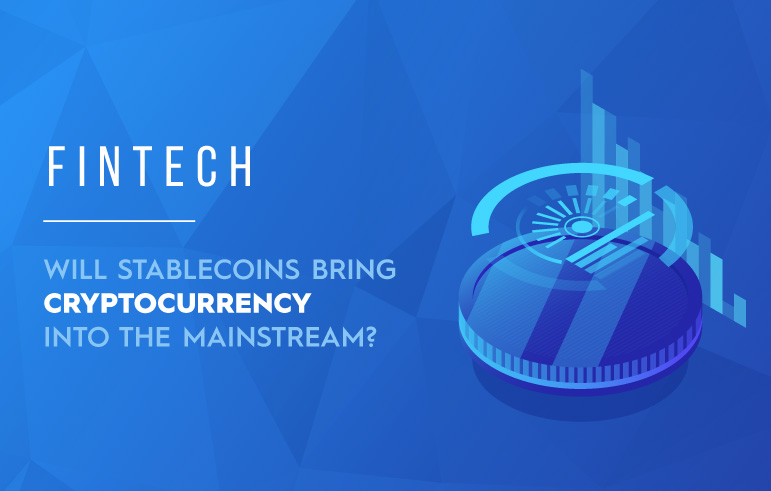
by silvia | Mar 12, 2019 | Corporates, Investors, Startups, Uncategorized
Blockchain is a technology with the ability to disrupt several industries (we wrote about it in our 5 Fintech Trends of 2019). It has several uses, and the technology aims to create a secure, transparent, decentralized payments system. It’s most popular use is to create cryptocurrencies.
The problem with cryptocurrencies
We all have heard the stories about people who became millionaires by investing in bitcoin, and also the stories of it losing its value just a few weeks later.
This happens because cryptocurrencies’ value is centered around speculation, so they fluctuate on a daily basis, which makes them unreliable as a currency.
Stabecoins aims to help in this regard – having the benefits of cryptocurrencies – transparency, security, privacy, simplicity) but without the volatility that comes with it.
What are stablecoins
Just like other cryptocurrencies, stablecoins are digital money that aims to mimic traditional stable currencies.
How? Well, just like other currencies, stablecoins are collateralized to the value of an underlying asset (which can vary). In general, there are 4 types:
- Fiat-collateralized Stablecoins: These coins are backed by fiat currencies (like USD, EUR or GBP), which means that as long as that country’s economy stays stable, so is the currency.
- Commodity-collateralized stablecoins: These coins are backed by other commodities like gold and other precious metals, oil, and even real estate. They have the potential to value overtime and make investing in gold or real estate achievable for everyone.
- Crypto-collateralized stablecoins: These are stablecoins backed by other cryptocurrencies. They are very decentralized because everything runs on the blockchain and enjoy more liquidity. They have not gained much tractio mostly because of its complexity.
- Non-collateralized stablecoins: These coins use an algorithmically governed approach to control the stablecoin supply. This is the most decentralized and independent form of stablecoin, as it isn’t collateralized to any other asset. However, it requires continual growth to be successful.
(Read more about the different types of stablecoins here.)
How can stablecoins help in the real world
Although complex in its structure, stablecoins can be a reality and bring a lot of advantages to users.
They can be used as a day to day currency, enabling digital payments everywhere and reducing the risks of cash use.
It can streamline recurring payments and P2P payments, making it easier for employers to have employees working remotely from all over the world.
Stablecoins can also be useful in diminishing inequality and helping developing countries around the world – the money sent by migrant workers to their families can now reach them in a faster way, with much lower fees, and without the stress of volatility of current cryptocurrencies.
It can also protect citizens in case of a crash of the local currency and hyperinflation.
Where is the future going
With all its advantages, there are still some setbacks for stablecoins: fiat-backed stablecoins are managed by a single entity, which means there is a need for a regular transparent audit of its reserve, to guarantee that the entity is actually backing up their stablecoins with real fiat.
It’s also constrained by the same regulations as fiat-currency, which means conversion is less efficient, and it has less liquidity.
There’s also the chance that the asset backing the currency crashes (be it fiat or other cryptocurrencies).
Stablecoins are still in the beginnings of its development and it’s still far from a mature level. However, its stability and advantages are certainly the reasons it might help cryptocurrencies come to the mainstream.
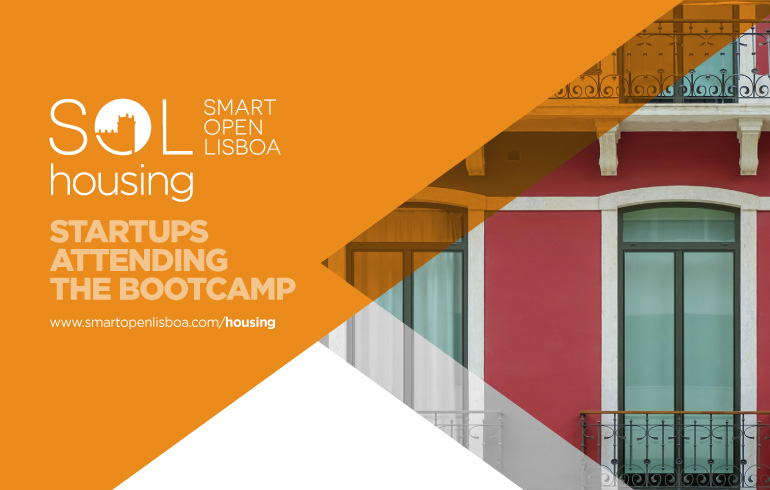
by silvia | Mar 11, 2019 | Corporates, Startups, Uncategorized
The Bootcamp for Smart Open Lisboa, Housing vertical, is starting next week. As the anticipation grows, we can finally meet all the startups that are coming for the Bootcamp.
Selection based on matching
After the applications phase, a selection of startups does a session of online pitching – showing their projects to the partners of the program and explaining how they can respond to the challenges.
The startups selected for the Bootcamp are the ones that can best respond to the challenges presented by the program and can better match their teams and technologies with the business goals of the partners.
The challenges faced
This vertical of Smart Open Lisboa – SOL Housing – focused on challenges faced in residential and commercial buildings, ranging from management of buildings, data processing and customer experience, to more sustainable solutions for management and new business models (like co-living).
Startups joining SOL Housing Bootcamp
Click “+” to know more about what they do and where they’re from!
[accordion]
[item title=”Alfredo AI”]
Alfredo was designed to bring transparency to the market. It consists of an Artificial Intelligence model, which enables in-depth quantitative analysis of the property market.
Country: Portugal
Website: alfredo.pt
[/item]
[item title=”Bead”]
BEAD is an IoT company developing innovative, sustainable and energy-efficient digital building solutions through infrastructure integrations and our analytics & AI platform.
Country: Germany
Website: enbead.com
[/item]
[item title=”Buildtoo”]
Construction project management software for project managers and investors/owners in a cloud system that provides real-time access to all project information.
Country: Portugal
Website: buildtoo.com
[/item]
[item title=”DOINN”]
Doinn is an online platform where short term rentals hosts and property managers can automatically schedule and buy services such as housekeeping and laundry, provided by high-quality and professional companies.
Country: Portugal
Website: doinn.co
[/item]
[item title=”Enerbrain”]
The Enerbrain system is a “plug&play” kit that can be easily installed in every building to fine-tune energy usage in real time without any drastic changes or replacements to the existing HVAC (heating, ventilating, and air conditioning) system.
Country: Italy
Website: enerbrain.com
[/item]
[item title=”Heptasense”]
Heptasense is an Artificial Intelligence software that is able to recognize any threat on video and send an alert is sent to the security teams, in real-time, to act on it, and without compromising privacy.
Country: Portugal
Website: heptasense.com
[/item]
[item title=”Howz”]
Howz measures the use of electricity in elderly people’s homes to build a pattern of daily behaviour and then identify unusual activity and notify the family.
Country: United Kingdom
Website: howz.com
[/item]
[item title=”Idatase”]
Idatase developed NetLume, an innovation platform that solves the key problem of the “human factor” for successful IoT initiatives by integrating domain experts and business into the IoT domain.
Country: Germany
Website: idatase.de
[/item]
[item title=”Lumen Cache”]
LumenCache shrinks Smart Grid features bringing them down the individual power loads inside buildings. It adds a secure, wired communication layer to the power distribution enabling every installed or plugged device to have a reliable foundation of energy management and safety.
Country: China
Website: lumencache.com
[/item]
[item title=”MClimate”]
MClimate is an IoT company which changes the way people use the appliances they already have, connecting to heating and cooling devices and allowing the customer to control 70% of their electricity bill – turning any home into a smart home.
Country: Bulgaria
Website: mclimate.eu
[/item]
[item title=”Meazon”]
Meazon creates an inflection point in energy efficiency & digitization services by providing cost efficient & reliable energy submetering.
Country: Greece
Website: meazon.com
[/item]
[item title=”Mycroft Mind”]
Mycroft Mind developed a DeepGrid platform that collects and processes data from smart metering and smart grid infrastructures, maximizing the analytics and insights to existing sensor networks.
Country: Czech Republic
Website: mycroftmind.com[/item]
[item title=”Nice Visions”]
Nice Visions makes customizable solar facade tiles for sensitive urban areas, combining solar cells and sustainable energy production and merging it with aesthetics.
Country: Slovakia
Website: hello.nicevisions.com
[/item]
[item title=”Nudge Portugal”]
Interventions that consist in small changes in the context of decision-making that influence economic behavior in a predictable and automatic way.
Country: Portugal
Website: nudgeportugal.com
[/item]
[item title=”Onegrid”]
ONEGRID is an energy management platform that eliminates electric energy waste, which reduces the electric energy bill in up to 40%.
Country: Brazil
Website: onegrid.co
[/item]
[item title=”Parquery”]
Via innovative computer vision and deep learning algorithms, Parquery analyses images to detect objects from any camera and to provide real-time information to mobility operators in the smart city.
Country: Switzerland
Website: parquery.com
[/item]
[item title=”Proximi.io”]
Proximi.io is the only technology-agnostic platform that combines all indoor and outdoor mobile positioning under a shared ecosystem, combining together not only all the technologies but also all the different use cases for location data.
Country: Finland
Website: proximi.io
[/item]
[item title=”Trustbill”]
Trustbill is an app that manages utility bills for European families, by identifying the best value deal for each family given their consumption pattern and switching them to it, thus helping families reduce their monthly household costs.
Country: Portugal
Website: trustbill.pt [/item]
[item title=”WearHealth”]
Wear health uses off-the-shelf wearable and IoT devices from partners and proprietary cognitive technologies to build an intelligent system that can detect, prevent and predict safety and health risks of workers.
Country: Germany
Website: wearhealth.com
[/item]
[/accordion]
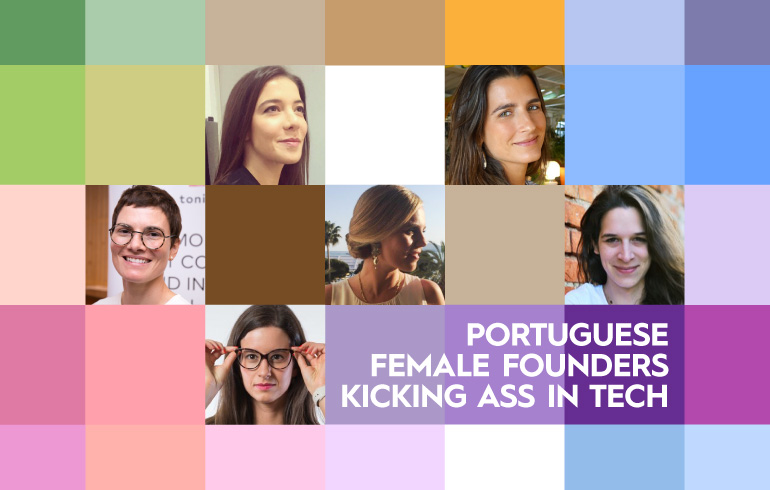
by silvia | Mar 8, 2019 | Corporates, Investors, Startups, Uncategorized
The European tech community is still dominated by men – The State of European Tech Report shows that only 22% of tech-event attendees are female, having made little progress from 2017 to 2018.
Portugal ranks in the top 10 countries with tech events more attended by females, with a proportion of female attendees that is only 25% (the highest ranking country is Albania with 33%).
Even though the community is far away from the ideal rate of gender diversity and inclusion (especially when it comes to investment as 93% of all funds raised by European VC-backed companies in 2018 went to all-male founding teams), there are some amazing women who founded startups in Portugal and abroad and are kicking ass in the industry.
Here are some of the Portuguese women-founded tech startups:
Tonic App
An app for medical doctors that aggregates the most useful medical tools and has a secure case discussion platform. It increases the efficiency of clinical work: allows fast and safe discussion of patient cases, team collaboration and aggregates content for day-to-day professional use, such as drug conversion tables or clinical calculators.
Founded Date: Apr 2016
Co-founder: Daniela Seixas
Daniela is a neuroradiologist, with an Executive MBA at IE Business School (2015). With a PhD in Neuroscience (collaborating with the University of Oxford, UK), she founded Tonic App in 2016 with 3 other founders. She is currently Tonic’s CEO and an affiliate professor at the Faculty of Medicine at Porto University.
Levoo
Levoo is an app that aims to become a leading delivery and take-away services company. You can use the app (or their physical kiosks) to order food instead of waiting in line, and you’ll be notified to pick it up when it’s ready – you can use your time for other things in the meantime.
Founded date: 2015
Co-founder: Anna Arany
Originally from Brazil, Anna flew to Portugal almost 12 years ago and was involved in several projects in the food service area. She co-founded Levoo in 2015 and is currently the company’s CMO.
Sparkl
Sparkl provides the world of beauty services in the comfort of your own home. Book an appointment through Sparkl’s website and get a Sparkl-approved professional to deliver the service in your own home, at a fixed rate.
Founded date: 2016
Co-founder: Mariana Romão
With over 6 years of experience in the business of Beauty, Mariana co-founded Sparkl in 2016 and became one of the startups backed by LC Ventures.
Mellow
Mellow is a sous-vide machine that takes orders through your smartphone and keeps food cold until it’s the right time to start cooking for you remotely. A technique that is widely used by chefs and that Mellow makes available at home, with an integrated app that provides smart control.
Founded date: January 29th, 2014
Co-founder: Catarina Violante
With a background in industrial design and postgraduate studies in Product Design, Catarina founded Mellow in 2014. She has designed numerous kitchen products over the years and is currently VP of product.
Talkdesk
Talkdesk is a contact center platform that empowers companies to make the customer experience a competitive advantage for their business. Talkdesk allows business to create a call center in minutes and integrate it with a variety of top business tools.
Founded Date: October 10th, 2011
Co-founder: Cristina Fonseca
Cristina is a software engineer and entrepreneur. She holds a Master’s degree in Telecommunications and Software Engineering and before founding Talkdesk in 2011 she worked as a researcher and built two other online businesses. She currently is a co-founder and Venture Partner of Indico Capital Partners – a leading institutional and independent venture capital firm based Lisbon focusing on Seed to Series A companies in fields like SaaS, Artificial Intelligence, fintech, cybersecurity and digital startups.
MUB Cargo
MUB cargo is an online platform that connects people and companies that need to transport cargo with a network of transporters willing to pickup and deliver those items. MUB cargo gives access to an online platform with several cargo requests that helps transporter maximize their capacity, taking advantage of the average 30% wasted capacity on every trip that is made while helping people in need of cargo transport an easy way to access transportation solutions at affordable prices.
Founded Date: March 2016
Co-founder: Mariana Gomes
With an educational background in Services Management and Business Administration, Mariana is a two-time founder (having previously founded Shairart). She is the Managing Director of MUB Cargo, that closed a Seed Round of €500k in March 2018 and now operates in both Portugal and Spain.
To all women co-founders and tech professionals, we wish a wonderful International Women’s Day!
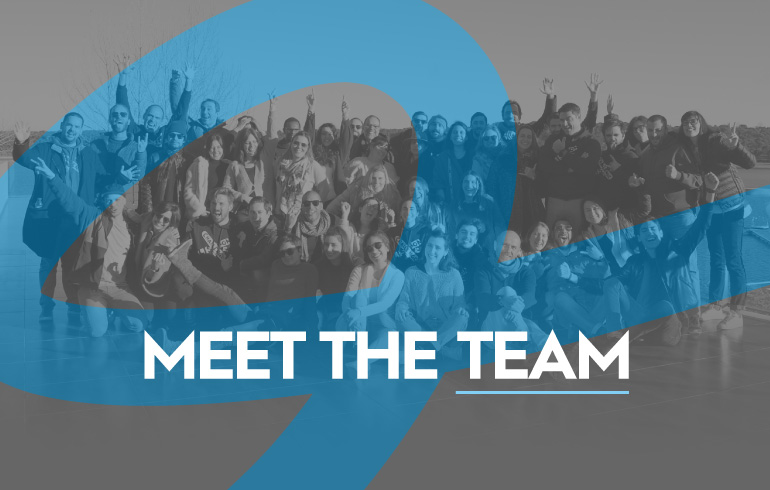
by silvia | Mar 7, 2019 | Corporates, Investors, Startups, Uncategorized
The Beta-i team keeps growing! Get to know our team, starting with Francisca, from our Education team!

Where did you meet Beta-i for the first time?
A good friend of mine, Mafalda Paiva Chaves, worked at Beta-i and invited me for one of the famous TGIF. I came over, drank a few beers and talked with very interesting people from the team. Loved the vibe since day one!
What do you do at Beta-i?
I manage education programs for different age groups, but currently, my main projects are focused on executive education and university students. However, I also work on developing content around personal development skills for kids and teenagers. The goal is to promote the inward and outward personal exploration, allowing students to develop the awareness, confidence, and knowledge to invest in their own talents.
What is the biggest challenge?
Explain to other people what I do! (laughs). This area is pretty recent in the company and even more in the market, having all the benefits and struggles of a first mover. We started as a small team where all of us needed to do a bit of everything, adapt rapidly and be open to doing (a lot) of things that we haven’t done before. Now we are growing and have the opportunity to focus on specific goals within the Education spectrum.
What is your favorite thing at Beta-i?
Beta-i is always open to try new things and gives space for people to dream while putting them in charge of making the dreams a reality. You have the room to create but you are also responsible for materializing your ideas. If you fail it’s ok, as long as you learn and improve with your failures.
I’m known at Beta-i for…
Making bold questions and giving assertive opinions.
What people don’t know about me:
I’m a firm believer in the power of personal development to live a fulfilled life! So I try to dedicate time each day to work on my personal growth. Currently, this means waking up one hour earlier during the week to read a book (I am a huge fan of the app blinkist, because I can read the highlights of one entire book in a morning), reflect on new learnings and commitments, meditate and exercise. Sometimes I can’t do all of them, but I try to commit to at least two of these activities per day.
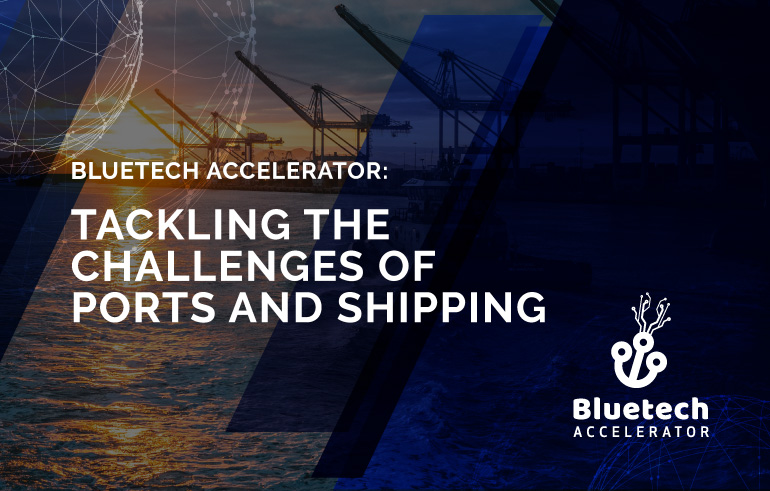
by silvia | Mar 6, 2019 | Corporates, Investors, Startups, Uncategorized
The ports and shipping industry is ready to step into the future. Bluetech accelerator has arrived, looking to build the ports of the future: autonomous systems for ports and smart shipping, with seamless processes between sea and land, digital data that will make decisions easy and informed, and new techs that will allow for environmental sustainability. Ready to be a part of it?
Bluetech Accelerator
Born out of the partnership of the Portuguese Ministry of the Sea and FLAD – Luso-American Development Foundation, and powered by DGPM and Beta-i, Bluetech accelerator aims to connect the most innovative tech and ocean startups with leading players in the industry to create a new blue economy – one that is modern, data-based, technologically advanced and environmentally friendly.
To achieve it, the programme will have 3 editions – Ports and shipping, aquaculture and fishing, and energy and sustainability.
Ports and Shipping
The first edition of the programme will focus on Ports and Shipping 4.0. Innovation is arriving in the industry, and as a strategically positioned country, Portugal has a sea of opportunities: startups joining the programme will work directly with Portugal’s biggest ports, relevant players in the shipping industry and leaders in the mobile satellite communications and digital economy – get to know the Bluetech Pioneers here.
The goal is to work towards the ports of the future: a seamless process of shipping, connection and cargo transport to land and accessible information across the supply-chain.
The challenges
The challenges the program hopes to tackle are:
- Process Optimization in Port Hinterland
- Cargo and Fleet Performance Management
- Future Shipping Connectivity
- Environmental Sustainability
You can read a more detailed description of each of the challenges here.
Tech We’re Looking for
Bluetech Accelerator is looking for startups technologies ranging from smart shipping and sea surveillance to big data and analytics. Get to know all the technologies Bluetech is looking for here.
A whole new generation of ocean startups
The challenges presented by the program, are relevant all around the world and can be industry changing. Today is more important than ever to work on changing vital industries to be more efficient, more connected and more sustainable, to better serve our economy and our planet.
Bluetech aims to build a new generation of ocean startups that will be the catalyst of this change and the builders of a modern ocean economy.
Get to know more about the programme here.







